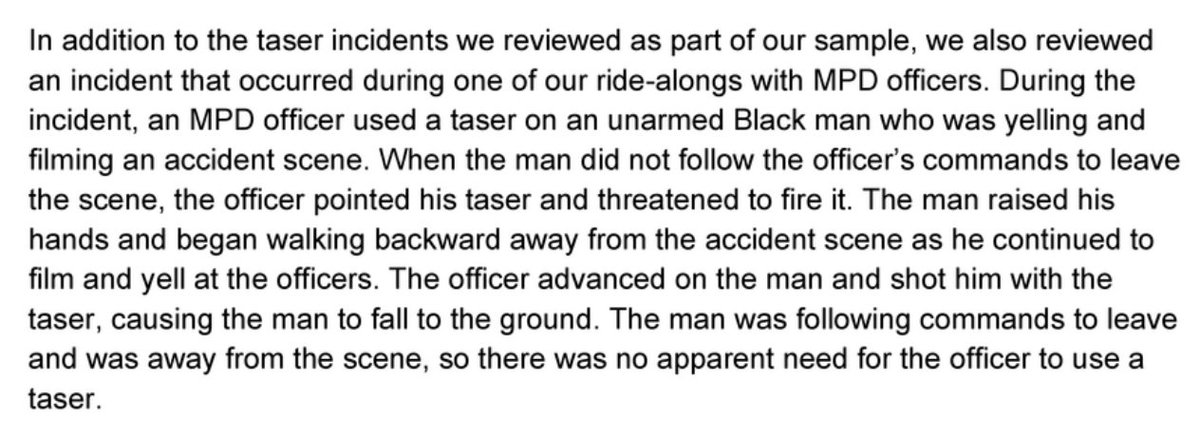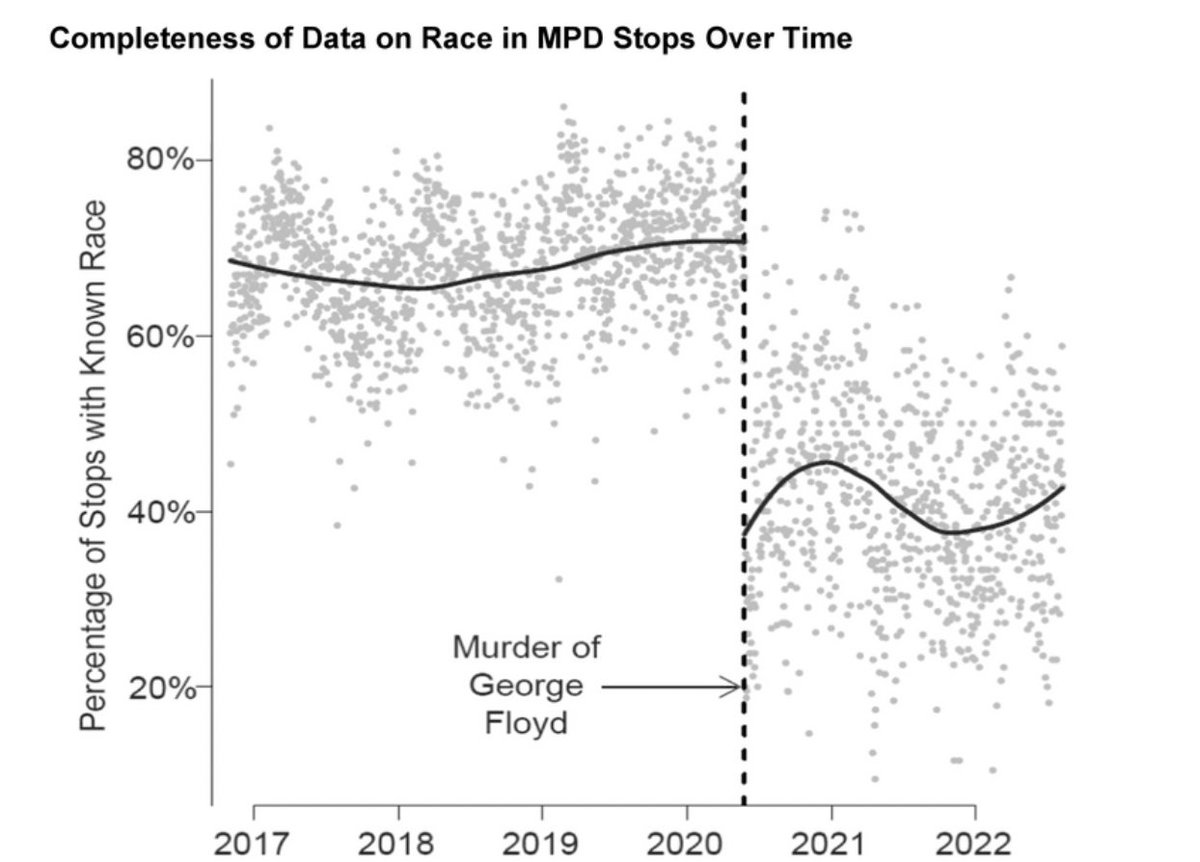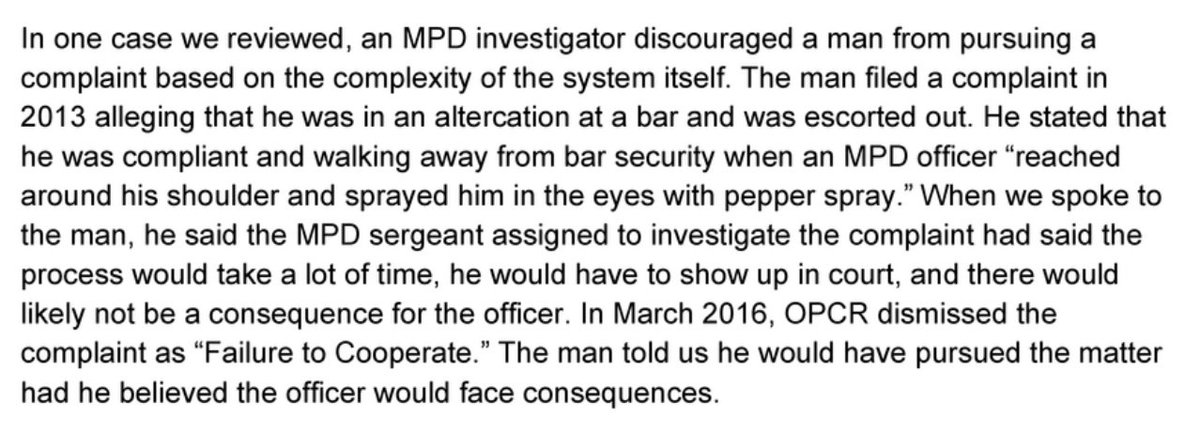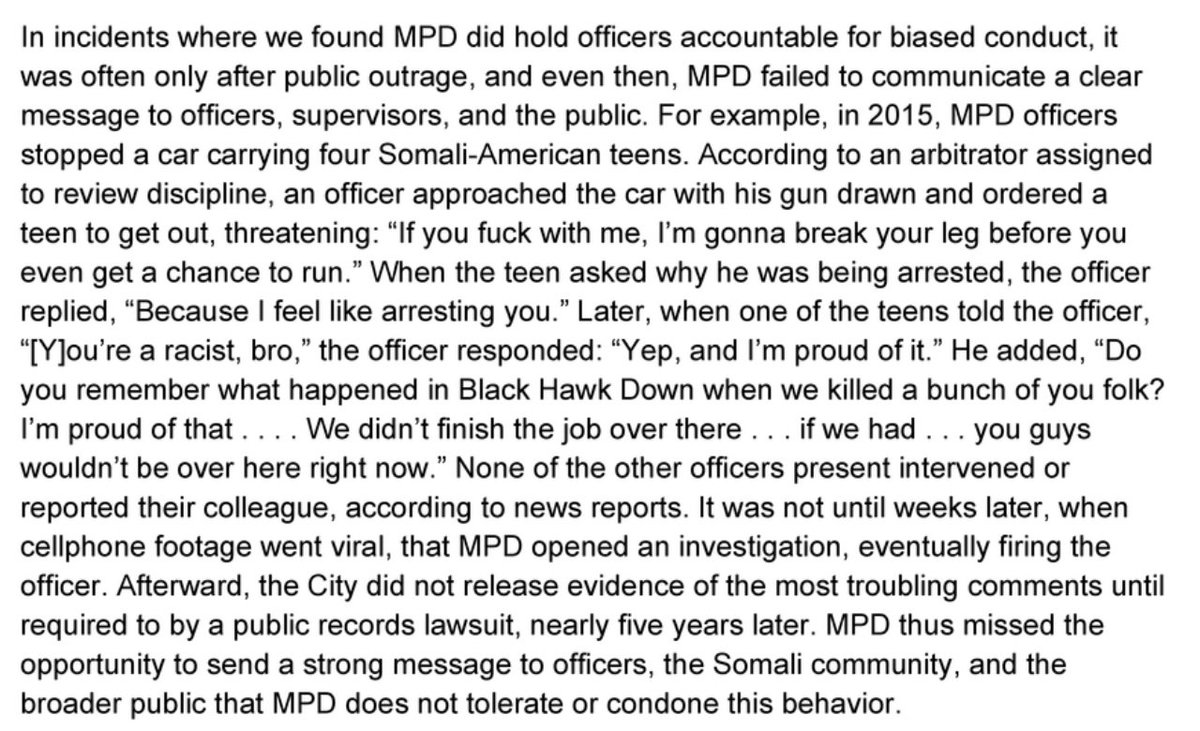DOJ just released the report from its two-year investigation of the Minneapolis police department.
Here's a thread of notable excerpts.
This first one happened *while a DOJ investigator was on a ride-along.*
Here's a thread of notable excerpts.
This first one happened *while a DOJ investigator was on a ride-along.*

Can't argue with this logic. A supervisor found that some MPD cops' use of force must have been reasonable because if it wasn't reasonable force, they wouldn't have used it. 

Read the incident, and then how the complaint was handled. The investigator was the same supervisor on the scene who failed to find any wrongdoing at the time. He then didn't bother interviewing witnesses or the complainant before clearing the cops. 



The whiter the neighborhood, the fewer traffic stops MPD made for minor offenses. This was true even among neighborhoods with similar accident rates. 

MPD conducts "pretextual" traffic stops of Black and Native American motorists at about six times the rate of white motorists, even though well less than 1 percent of such stops recovered guns (the main justification for conducting them). 



Black and Native American people were far more likely to be searched during a stop, even after adjusting for stops involving similar offenses and motorist behavior. 

After the murder of George Floyd, many MPD officers stopped recording the race of people they pull over, as required by law and policy. 

Step one: Create an immensely complicated system that fails to hold bad cops accountable.
Step two: Tell complainants that filing a complaint isn't worth it because it's an immensely complicated system that fails to hold bad cops accountable.
Step two: Tell complainants that filing a complaint isn't worth it because it's an immensely complicated system that fails to hold bad cops accountable.

This one looks a lot like what happened to George Floyd. Two years before George Floyd. Referred by the city attorney. Documented by a city employee. Never investigated. 



You know you have a problem when a federal court won't even grant officers qualified immunity, but your official investigation finds no violation of policy. 

MPD often "disciplines" officers by referring them for "coaching," even for serious abuse. But less than a quarter of those referrals actually result in any coaching. 



Obligatory dog shooting incident. Bonus: Supervisor cleared the cops without interviewing them, by citing fictional video footage that directly contradicts the actual video footage. 

• • •
Missing some Tweet in this thread? You can try to
force a refresh
























